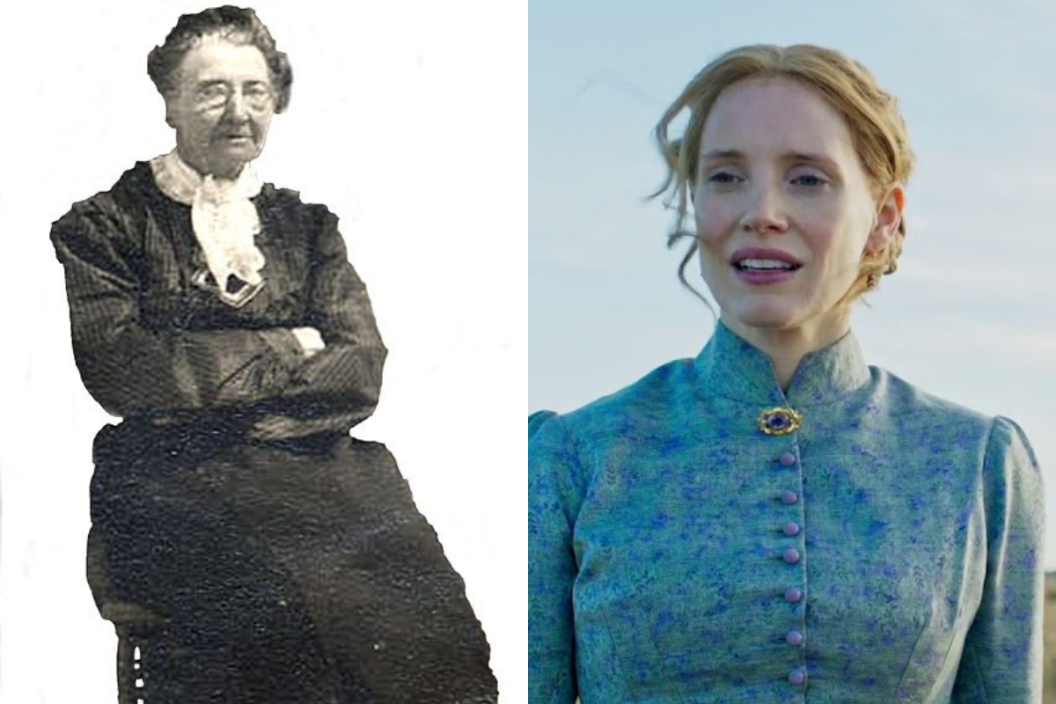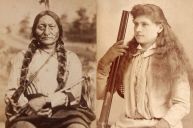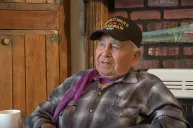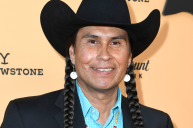Caroline Weldon shocked the world when she moved to the Dakota Territory intent on helping Chief Sitting Bull and the Sioux fight for their rights. Despite receiving no invitation at all, she arrived at Standing Rock Reservation in 1889 with her young son Christie in tow, dedicated to the cause, though she and Sitting Bull would both meet unfortunate fates during their quest.
Videos by Wide Open Country
Weldon, born in Switzerland, had originally been named Susanna Faesch. After relocating to Brooklyn, New York, she left her husband for a married man with whom she had her only child. After her lover abandoned her and her divorce from her husband was finalized, Susanna changed her name to Caroline Weldon and decided to pursue her dream of living among the Sioux and fighting the U.S. government for Native American rights.
"Weldon was one of the only white people of her time of either gender who not only had the right political view of Native American rights, but also gave her life to work for those rights," says Eileen Pollack, author of Woman Walking Ahead: In Search of Catherine Weldon and Sitting Bull. Pollock's book was later adapted into the film Woman Walks Ahead starring Jessica Chastain.
Weldon certainly led an interesting life, especially for her time. She was so much more than a Swiss immigrant on a mission. As a result of her divorce, she was not permitted to remarry so her entire life revolved around defending the Native Americans. As a result of the Indian Appropriations Act in 1851, the United States began forcing Native Americans into their own reservations as more and more citizens traveled west into what is now North Dakota and South Dakota. Weldon had long been interested in the entire controversy which is why she dedicated herself to helping the Lakota Sioux who were determined to keep their heritage and not become "whitewashed."
At the time, the National Indian Defense Association was also dedicated to helping the local Native Americans defend their land against the Dawes Act, which could divide up reservations and even send their children off to boarding school. Weldon began sending Sitting Bull letters once she heard of this news before finally packing her bags and moving out to help in person.
Read More: What 8 Legendary Wild West Towns Looked Like Then and Now
The locals immediately made a mockery of Weldon and her mission as soon as she moved into town, intent on becoming Sitting Bull's personal secretary and advocate. Newspapers referred to her as the "white squaw," townsfolk taunted and bullied her, no one understanding why exactly she had joined the Sioux cause. She was a single mom, moving out to the Wild West with nothing to lose, and she didn't let any of the criticism stop her. She even painted four oil paintings of Sitting Bull during her time on the reservation though only two survived and are currently in museums.
Something called the Ghost Dance movement started becoming popularized amongst the local Native Americans in the late 1800s. Essentially, it claimed that if the tribe performed specific songs and dances it would make the white people disappear so their dead ancestors could come back to earth. Weldon feared this would put a target on Sitting Bull and despite her warnings, her opposition caused a rift between the pair who had become quite close.
One year after Weldon left the reservation, Sitting Bull was killed by the government for refusing to end the Ghost Dance ceremonies. After Weldon's son passed away, she moved back to Brooklyn as a social outcast, only to live in poverty and isolation before tragically dying in an apartment fire. Though Sitting Bull, Weldon, and the other advocates were not able to stop the devastation that befell the Sioux people, they should be remembered for their bravery and dedication to stand up for what is right against all odds.
Pollack points out, "It's incredibly important to look at the very few people who in their time bucked all the conventions at great danger to themselves to do the right thing." By fighting for Sitting Bull and his people, Weldon "tried to make America live up to its own ideals."
Now Watch: 'Yellowstone': You Can Stay at the Real Dutton Ranch in Darby, Montana
https://rumble.com/embed/u7gve.v8xfh7/




